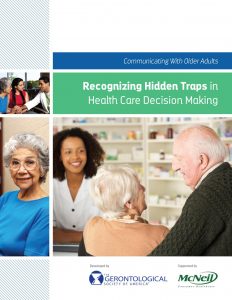May
04
2017

Free speech has been a hot issue recently, and probably always will be to some extent. This is likely because the stakes are high – free speech is a core liberty essential to any functional democracy. But in a society where you have to live with other people, liberty cannot be unlimited, because it will bump up against the liberty of others. So there needs to be some well-thought-out rules for how to resolve conflicts.
How a society balances the need for free speech with the need to protect people from defamation, fraud, oppression, and harassment says a lot about the character of that society. In the US we have constitutionally chosen to err on the side of free speech, and I think this is appropriate. The courts give people a wide berth to have freedom of expression, and understands that the very speech that needs defending is speech that someone finds offensive.
At the same time, freedom from having your public speech repressed does not translate into a right to access to any venue at any time. The New York Times is not obligated to publish your 10-page manifesto.
The real purpose of this post, however, is not to delve into the nuances of free speech but to discuss how individual people decide on those nuances. This was illuminated by a recent study, the results of which I find entirely unsurprising. This is in line with the general findings of psychological studies.
Continue Reading »
Feb
09
2017
 Full disclosure – I have been a Patriots fan since in the 1980s. I suffered through a couple long decades of rooting for a mediocre team, including the worst (at the time) Super Bowl defeat at the hands of the Bears. Then along came Belichick and Brady, and it has been a wild ride as a fan.
Full disclosure – I have been a Patriots fan since in the 1980s. I suffered through a couple long decades of rooting for a mediocre team, including the worst (at the time) Super Bowl defeat at the hands of the Bears. Then along came Belichick and Brady, and it has been a wild ride as a fan.
Super Bowl LI was perhaps the pinnacle – the Patriots came back from a 25 point deficit to tie the game and then win in sudden-death overtime. I feel genuinely bad for Falcons fans, but perhaps worse for those who stopped watching the game in the third quarter because they thought it was over. Those who stayed through to the end were rewarded with historically epic football.
(As an aside, I am a fan simply because it is fun to have a team to root for. Don’t read too much into it.)
What is interesting, from a critical thinking perspective, about the game is the way in which we construct narratives to explain random events, or at least events that have an element of randomness or “luck” involved. At half-time the Falcons were up 21-3 and the discussion among the commentators was all about how well the Falcons were playing and everything the Patriots were doing wrong. The Falcons had “momentum” and the Patriots had to figure out a way to steal this elusive “momentum” back.
Continue Reading »
Jan
13
2017
 This was an unexpected pleasant find in an unusual place. The Gerontological Society of America recently put out a free publication designed to educate patients about cognitive biases and heuristics and how they can adversely affect decision making about health care.
This was an unexpected pleasant find in an unusual place. The Gerontological Society of America recently put out a free publication designed to educate patients about cognitive biases and heuristics and how they can adversely affect decision making about health care.
The publication is aimed at older health care consumers, but the information it contains is applicable to all people and situations. It is a well written excellent summary of common cognitive biases with a thorough list of references. There are plenty of other resources that also review this material, including my own Teaching Company course, but this is a good user-friendly reference.
What is most encouraging about this publication is the simple fact that it recognizes that this is an issue. It is taking knowledge of psychology and applying it to the real world, recognizing the specific need for critical thinking skills in the public. This could have easily been produced in many different contexts – not only any medical specialty, but investing your money, buying a home, choosing a college, or evaluating news reports.
The report is aimed simultaneously at health care providers and patients. It is primarily a guide for providers for communicating with older adults, accounting for cognitive biases in decision-making, but at the same time will help consumers communicate with their providers and make better decisions.
Continue Reading »
Jun
01
2015
I’m a big fan of science for many reasons. Not only is the subject matter of science often incredibly interesting, but the process of science seems to work better than any other method humans have developed for knowing about the universe in which we live. Any fair-minded and knowledgeable view of human history cannot avoid this conclusion.
It’s therefore worthwhile thinking about and exploring the science of science itself, what we might call metascience. It is, in fact, a common narrative among skeptics and science communicators that, while science is awesome, it is practiced by biased and flawed humans. The history of science is one of error, bias, and ego that manages to slowly grind toward the truth.
Metascience is as important as metacognition, or thinking about thinking, and I write about both topics often. These are core knowledge-bases for any critical thinking skeptic. Here is a list I compiled of the most important issues with the quality of science. The goal here is not to criticize science, but to improve its practice, make it more efficient, minimize wasted resources, and help the public sift the reliable from the nonsense.
I’m now going to add another important concept to the list – citation bias.
Continue Reading »
May
02
2014
Let’s say you need a surgical procedure and the surgeon tells you there is a 98% survival rate with the procedure. How would you feel about that? What if she told you there was a 2% mortality rate? Would you feel the same way? Probably not, according to years of psychological research.
This is known as framing bias, just one more of the many ways in which our brains are biased in the way we evaluate information. The two scenarios above are identical, but statistically people will make different decisions based upon how the information is framed. We generally respond better to positively framed information (98% survival) than to negatively framed information (2% mortality).
The framing effect is often exploited by those who are deliberately trying to manipulate our reactions. Politicians, for example, can talk about employment rates or unemployment rates. Events can give you an early-bird discount or a late registration penalty. Products can have 4% fat or be 96% fat free.
Framing is another way in which we construct our picture of realty, by deciding what information is important.
Continue Reading »
May
06
2013
I gave a seminar recently to science teachers and the topic of whether or not there is a lunar effect came up. I was not surprised to find that 80% of them believed that emergency rooms and police stations are more busy during a full moon. I was also not surprised, but only because I have been there before, that they were highly resistant to my claim that the scientific evidence shows that there is no such effect.
Several questions emerge from the notion that the phases of the moon affect human behavior: what is the plausibility of such a claim, is there actually such an effect, and if not why do so many people believe that there is?
Plausibility
One of two justifications are commonly given for how the moon might influence human behavior. The moon basically has two physical effects on our environment – gravity and light. Astrological influences are not worth further discussion in this article, and I rarely hear that as a justification from the general public in any case.
Continue Reading »
Dec
04
2012
It is my contention that scientific skepticism is an intellectual discipline and a cognitive skill set more than anything else. It is also a philosophy, a value system, and an approach to knowledge – but these are hollow without the knowledge and skills to apply that philosophy.
This is especially true in our complex world, with sophisticated pseudoscience alongside mature and highly technical real science, ideologies of every stripe pushing their agenda, governments with power to protect, and markets and corporations with a profit motive to deceive. The internet is also drowning us in information, much of it dodgy.
It is therefore not enough to have a generally skeptical outlook, or even to call oneself a skeptic. Skepticism is a journey of self-knowledge, exploration, and mastering the various skills that comprise so-called metacognition – the ability to think about thinking. <shameless plug> For a thorough discussion of metacogntion, you can check out my Teaching Company course: Your Deceptive Mind: A Scientific Guide to Critical Thinking Skills. I also understand it makes a wonderful gift.</shameless plug>
As an example of the need for metacognitive skills in navigating this complex world there is confirmation bias. This is definitely on my top 5 list of core skeptical concepts, and is a major contributor to faulty thinking. Confirmation bias is the tendency to perceive and accept information that seems to confirm our existing beliefs, while ignoring, forgetting, or explaining away information that contradicts our existing beliefs. It is a systematic bias that works relentlessly and often subtly to push us in the direction of a desired or preexisting conclusion or bias. Worse – it gives us a false sense of confidence in that conclusion. We think we are following the evidence, when in fact we are leading the evidence.
Continue Reading »
Mar
29
2012
The psychological literature is full of studies that demonstrate that our biases affect our perception of the world. In fact psychologists have defined many specific biases that affect not only how we see but how we think about the world. Confirmation bias, for example, is the tendency to notice, accept, and remember data that confirms what we already believe, and to ignore, forget, or explain away data that is contradictory to our beliefs.
Balcetis and Dunning have published a series of five studies that add to this literature by showing what they call “wishful seeing.” In their studies they found that people perceive desirable items as being physically closer to them than less desirable items. This finding is plausible and easy to believe for a skeptic steeped in knowledge of cognitive flaws and biases. But is this finding itself reliable? Psychologists familiar with the history of this question might note that similar ideas were researched in the 1950s and ultimately rejected. But that aside, can we analyze the data from Balcetis and Dunning and make conclusions about how reliable it is?
Recently Gregory Francis did just that, revealing an interesting aspect of the “wishful seeing” data that calls it into question. Ironically the fact that Balcetis and Dunning published the results of five studies may have weakened their data rather than strengthen it. The reason is publication bias.
Continue Reading »
Mar
18
2011
I woke up with a strange idea in my head that I wanted to get off my chest. This has to do with how we project our biases onto fiction, in this case specifically science fiction. My thought involves ship design – how would you design a ship for deep space travel?
First let’s take some common examples from science fiction, such as the Starship Enterprise. The decks of the Enterprise are oriented parallel to the direction of acceleration, which means that people standing on the decks are perpendicular and the force of acceleration would “push” them horizontal to the deck. The same is true of ships of all sizes in Star Wars, Battlestar Galactica, and many other popular science fiction shows.
I know there are exceptions. The ship in Kubrick’s 2001, A Space Odyssey had an interesting design, using a rotating doughnut to generate artificial gravity. This ship was designed, however, for relatively short interplanetary travel and for coasting (rather than accelerating) most of the time. There are sure to be other exceptions – but my point is, they are exceptions, not what we commonly see in science fiction.
Continue Reading »
Mar
14
2011
One of the mantras of the scientific skeptic is that we need formal logic and scientific methods in order to overcome our cognitive biases. Without a structure to observation and thinking, our biases would overwhelm our conclusions.
This is true not just in the scholarly study of the universe, but in our everyday lives. The more we are aware of the common cognitive biases, the less of a stranglehold they will have on our beliefs. Just realizing the degree to which our perceptions and judgments can be radically altered by seemingly irrelevant factors is very important. In my experience this is often the one critical difference that separates those with a generally skeptical outlook from those more inclined toward uncritical belief. Believers find the subjective reports of others, and their own experiences, to be highly compelling, while skeptics are comfortable dismissing even dramatic anecdotes on the basis of understanding the power of self-deception and cognitive flaws and biases.
In short – believers generally operate under the paradigm of seeing is believing, while skeptics operate under the paradigm that often believing is seeing.
Continue Reading »


 Full disclosure – I have been a Patriots fan since in the 1980s. I suffered through a couple long decades of rooting for a mediocre team, including the worst (at the time) Super Bowl defeat at the hands of the Bears. Then along came Belichick and Brady, and it has been a wild ride as a fan.
Full disclosure – I have been a Patriots fan since in the 1980s. I suffered through a couple long decades of rooting for a mediocre team, including the worst (at the time) Super Bowl defeat at the hands of the Bears. Then along came Belichick and Brady, and it has been a wild ride as a fan. This was an unexpected pleasant find in an unusual place. The Gerontological Society of America recently put out a
This was an unexpected pleasant find in an unusual place. The Gerontological Society of America recently put out a 





